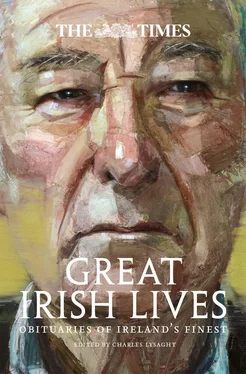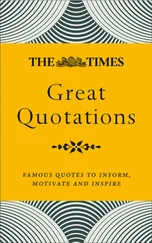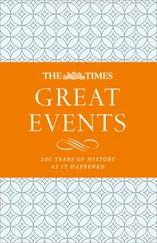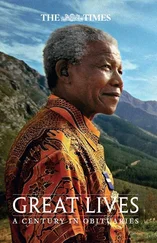The period which this narrative has now reached was still many years antecedent to the introduction of the Roman Catholic Relief Bill. Down to that moment Mr O’Connell prosecuted with unabated vigour his peculiar system of warfare against the supporters of Orange ascendancy, while he pursued his avocations as a lawyer with increasing and eminent success. As early as the year 1816 his professional position quite entitled him to a silk gown, but his creed kept him on the outside of the bar, where he continued to enjoy the largest and most lucrative business that ever rewarded the labours of a junior barrister. Meanwhile that body, called the Catholic Association, with O’Connell at its head, carried on the trade of agitating the Irish populace. The latter years of the Regency were marked by a new and more soothing policy towards Ireland. Upon the accession of George IV. he visited that country; in the early part of his reign the principle of conciliating the O’Connell party was maintained and extended; the Liberalism of the Canning policy began to prevail; “Emancipation” was made an “open question,” and even in 1825 the demand for religious equality seemed nearly established. Mr O’Connell declared himself willing to give up the forty-shilling freeholders – willing to sacrifice the lowest of his countrymen for the sake of the highest – to limit the democratic power in order that the aristocracy of the Roman Catholics should have seats in Parliament and silk gowns at the bar. The Parliamentary career of him – the “member for all Ireland” – now more immediately claims our attention; and it naturally takes its commencement from the first occasion upon which he was returned for Clare. A vacancy having occurred in the representation of that county, a gentleman called O’Gorman Mahon, seized by a sudden freak, posted off to Dublin, entered the Roman Catholic Association, and proposed a resolution calling on O’Connell to become a candidate, which was unanimously carried. Though legal success was impossible the scheme just suited the Irish character. It afforded the prospect of “a row,” and – more acceptable still – a piece of whimsical agitation. The long continued labours of O’Connell, extending even then over a period of more than twenty years, had rendered a maintenance of the penal laws a matter which the Government of that day considered to be, if not unjust, at least exceedingly unsafe; but it is believed that the great Clare election was the first event that awakened them to a full sense of danger. Mr O’Connell had been so often engaged on the wrong side of a legal controversy that he did not, upon this occasion, hesitate to promise his adherents an easy triumph. He averred that he could sit without taking the oaths; and his legal doctrines were supported by Mr Butler – a member of the English bar – while his pretensions as a candidate were sustained by the influence of the priesthood and the agency of the mob. Mr (afterwards Lord) Fitzgerald had represented Clare for many years, he was one of the resident gentry in a land where not to be an absentee is a virtue; his ancestors had long been settled in that county: he had faithfully maintained the interests, and spoken the sentiments of the popular party, and he was the firm friend of Roman Catholic emancipation; though only a tenth-rate man in Parliament, he was a first-rate man on the hustings, but his exertions at the Clare election were wholly and signally unsuccessful. The combined influence of the Government, of his own connexions, of the squirearchy, were scattered and set at nought by the power of the priesthood; and Mr O’Connell was, on the 6th of July, 1828, returned to Parliament by a large majority of the Clare electors. He lost no time in presenting himself at the table of the House of Commons, and expressed his willingness to take the oath of allegiance, but refusing the other oaths he was ordered to withdraw. Discussions in the house and arguments at the bar ensued; the speedy close of the session, however, precluded any practical result. Agitation throughout every part of Ireland now assumed so formidable a character that Ministers said they apprehended a civil war, and early in the next session the Roman Catholic Relief Bill was introduced and carried: Mr O’Connell was, therefore, in the month of April, 1829, enabled to sit for Clare without taking the objectionable oaths; but it was necessary that a new writ should issue, under which he was immediately re-elected.
His return for Clare was amongst the proximate causes of “emancipation,” but the “rent” was another source of still more active influence. Whether the scheme for raising that annual tribute originated in the fertile brain of Daniel O’Connell, or sprang from the perverted ingenuity of some less conspicuous person, certain it is that he was ultimately the great gainer. One of the earliest effects, however, of this financial project was most materially to aggravate that threatening aspect of public affairs which coerced the Duke of Wellington into proposing the Roman Catholic Relief Bill. A due regard to the precise succession of events makes it necessary here to notice an occurrence in itself of no great amount. On the 12th of February 1831, Messrs. O’Connell, Steel, and Barrett, were brought to trial, under an indictment, which charged them with holding political meetings contrary to the proclamation of the Lord Lieutenant; they pleaded guilty, but the act of Parliament under which they had been prosecuted expired pending the general election, and before they were brought up for judgment; they therefore escaped punishment, and the partizans of Mr O’Connell pointed to this negative victory as one of the proudest proofs that could be furnished of his infallibility as a lawyer. The death of George IV. of course led to a new Parliament, when Mr O’Connell withdrew from the representation of Clare and was returned for the county of Waterford. In the House of Commons, elected in 1831, he sat for his native county (Kerry). Dublin, the city in which the greater part of his life was spent, enjoyed his services as its representative from 1832 till 1836, when he was petitioned against and unseated, after a long contest, before a committee of the House of Commons. He then for some time took refuge in the representation of Kilkenny; but, at the general election in 1837, he was once more returned for the city of Dublin, and in 1841 for the county of Cork. Mr O’Connell had a seat in the House of Commons for 18 years, under the rule of three successive Sovereigns, during six distinct Administrations and in seven several Parliaments.
Every reader is aware that he took an active part in all the legislation of the period, as well as in the various struggles for power and place in which the political parties of this country have been engaged during the last 20 years; and right vigorously did he bear himself throughout those changing scenes … His position as mouth piece of the priesthood and populace of Ireland usually made it necessary that the tone of his speeches should harmonize with the feelings of a rude and passionate multitude; but on subjects distinct from the party squabbles of his countrymen scarcely any one addressed the house more effectively than did Mr O’Connell; and it is generally acknowledged that in his speeches upon the great question of Parliamentary Reform he was surpassed by very few members of either house. Although it cannot be denied that the faults of his character were numerous, and the amount of his political offences most grievous in the sight of the public, yet he enjoyed some popularity even in this country, for many elements of greatness entered into the constitution of his mind. Had he not belonged to a prescribed race, been born in a semi-barbarous state of society, been blinded by the fallacies of an educational system which was based upon Popish theology; had not his intellect been subsequently narrowed by the influence of legal practice, and the original coarseness of his feelings been aggravated by the habits of a criminal lawyer and a mob-orator, he might have attained to enviable eminence, legitimate power, and enduring fame. But he “lived and moved and had his being” among wild enthusiasts and factious priests. Who then can marvel that his great faculties were perverted to sordid uses? Apparently indifferent to nobler objects of ambition, he devoted herculean energies to the acquisition of tribute from his starving countrymen, and bestowed upon his descendants the remnants of a mendicant revenue, when he might have bequeathed them an honourable name. His Parliamentary speeches are numerous; but the events of his Parliamentary life have been few in number; for it can scarcely be said that by his personal efforts any series of measures were either carried or defeated; yet several propositions have been brought forward in the House of Commons by Mr O’Connell. Amongst the most remarkable of these was his motion for a repeal of the Irish union, submitted to Parliament on the 22nd of April, 1834. Upon that occasion he addressed the house with his usual ability for upwards of six hours; and Mr Rice (now Lord Monteagle) occupied an equal length of time in delivering a reply which might advantageously have been reduced within half its dimensions. After a protracted debate the house divided, only one English member voting with Mr O’Connell, the numbers being 523 to 38. Those who supported him on that remarkable occasion consisted of persons returned to Parliament by the Irish priests, at his recommendation, and pledged to vote as he directed; they were therefore called “the O’Connell tail,” and no doubt, when political parties were nicely balanced, the 30 or 40 members whom he commanded could easily create a preponderating influence. Thus it was his power which from 1835 to 1841 kept the Melbourne Ministry in office. To reward such important aid, the greater portion of the Irish patronage was placed at his disposal; and, to a great degree, the Irish policy of the Melbourne Government took its tone and character from the known sentiments of the demagogue upon whose fiat their existence depended.
Читать дальше












